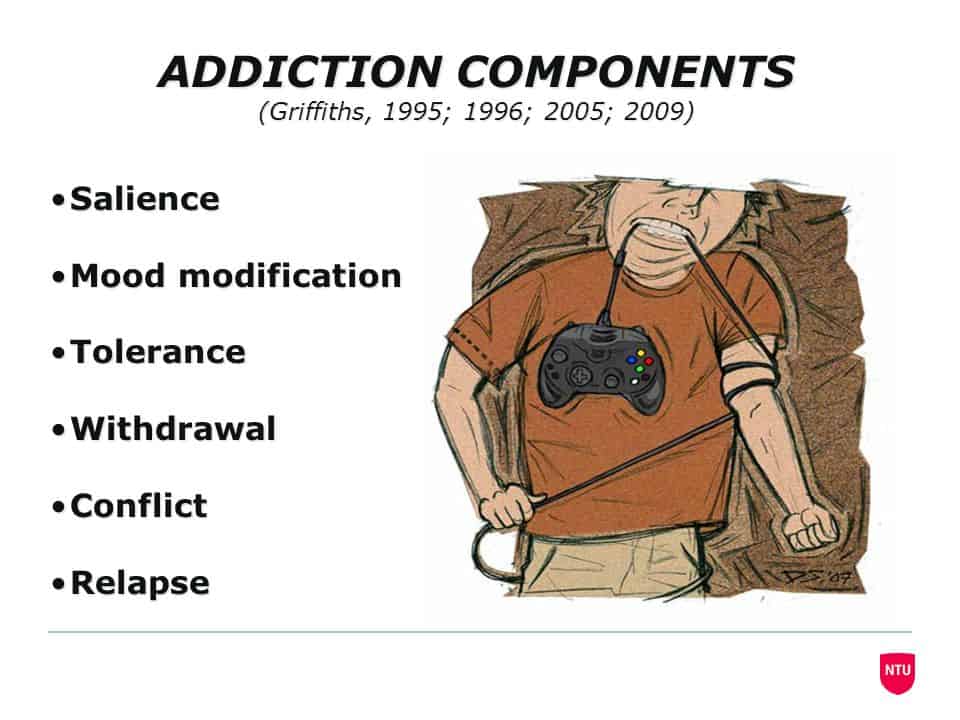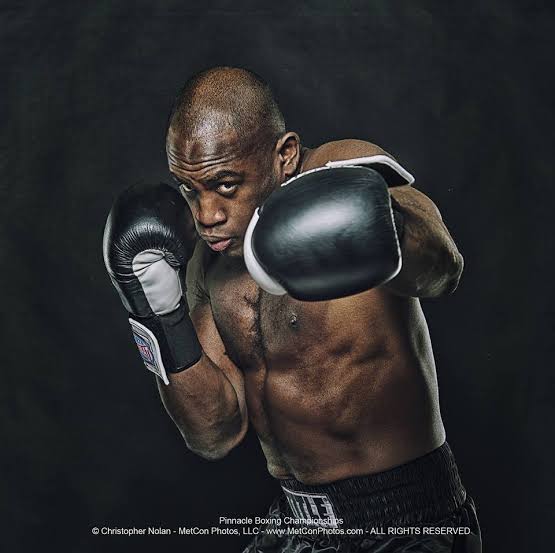Underlying Causes of Addiction and Destructive Habits
Addiction is a complex disorder that comes with harmful consequences. So what are the underlying causes of addiction and destructive habits? Continue reading…
When someone tells me that certain drugs are non-habit forming or not addictive, I shake my head.
A person can get addicted to anything.
You may not experience the physiological changes that happen with something like heroin, but that doesn’t mean you aren’t psychologically affected.
Anything with the capacity to deliver pleasure or relieve pain can become addictive.
On the other hand, not everyone becomes addicted to everything that is deemed addictive. I know a guy who smoked crack-cocaine on three separate occasions and decided that he just didn’t like it. The difference tends to be about the underlying causes of addiction.
The same idea holds for those who get addicted to seemingly benign things as well.
Most people don’t get addicted to sex, food, or video games, but there is clearly a segment of the population that has a problem moderating those activities, and this has a lot to do with the underlying causes of addiction.
I was addicted to alcohol. I was addicted to pornography. From those two addictions, along with conversations I’ve had with people addicted to other things, I know that all addictions are similar in both their outcome and process.
Related: Sober Letters To My Drunken Self
What Is Exactly Is Addiction?

Addiction is a brain disease that forces compulsive substance use despite harmful consequences. Some things may affect our physiology in a way that makes abuse of them more likely, but everything has the capacity for addiction. Even pain.
People suffering from addiction have an obsessive focus on using a certain substance or engaging in a specific activity – such as alcohol, drugs, or gambling – to the point that it takes over their life.
They keep doing, using, and abusing, even when they know it will cause problems. You know you’re addicted to something when you can’t stop doing it, even when it does more harm than good. Addicts do a thing in such a way that the cost of the activity outweighs its value.
Related: Video Game Addiction Test
The hallmark of addiction is the inability to keep everything back under control.
In my quest to get control of my addictions, I did a lot of soul searching.
I had to learn about the underlying causes of addiction. I had to figure out why I couldn’t control my drinking or why I needed to visit a pornography site every time I sat at my computer. What I learned not only helped me get control of my situation, but it also helped me better understand and help other addicts.
Addiction is a complex disease. No matter what you’re addicted to and what the outcome of it is, addiction is rooted in something deeper.
Underlying Causes of Addiction:
You’re Lonely
Everyone wants to be noticed. We don’t necessarily need to be admired, but we do not deal well with being ignored. No matter how much of a “lone wolf” someone believes they are, their life is enhanced, in some capacity, by the presence of other people.
If you doubt this, remember: the punishment for people who are already in prison is solitary confinement. And even this punishment is so extreme that many debate if it can be considered “cruel and unusual” punishment.
It’s easier to give into addictive behaviors when they alleviate loneliness. I always looked for people to drink with because I didn’t want to be alone. I stayed out drinking later than I wanted to because I didn’t want to be alone.
Although naked bodies on a digital screen are no substitute for a human embrace, pornography offered a quick stand in for human connection.
No One Wants To Be Alone
We all crave human connection and group acceptance. Not only is there nothing wrong with this, but this is how we’re designed. Many people would rather have bad company than none at all, but even more than loneliness, we fear rejection.
Fear of rejection can make us act in a way that we initially don’t want to for group approval, but we eventually make the behavior our own.
Related: The Surprising Truth About Rejection
After I went out drinking 10 nights in a row with friends, the 11th night left a void. To relive the good feelings I had while out the other 10 nights, I started drinking by myself. Before I knew it, I was trying to recreate the feelings of togetherness by getting drunk alone.
This starts a nasty cycle.
The only way you know to feel good is to do the thing that’s bad for you. You engage in self-destructive behavior because it’s the only way you know to avoid the pain of loneliness. I drank so that I could escape the reality of social conditioning.
I suspect many of us become addicted to things because fill the gap of loneliness.
Read: How To Get Into A Relationship
You’re Boring
We have myriad of ways to entertain ourselves, but most of these things will never truly alleviate your boredom. At best, they serve as distractions. At worst, they remind you of how monotonous your life is.
Boredom is such a miserable feeling that many people will do things they know are harmful or self-destructive just to escape it. But what exactly is boredom?
“The world isn’t boring. You are.”
Boredom arises when you don’t have a purpose or goal, but you also don’t have a pressing urgency or immediate concern. You have no demands on your time while simultaneously failing to find something worthwhile to occupy it.
This is not the same thing as rest and relaxation.
You can only rest and relax after strenuous activity. The purpose then is to do nothing. At the very least, the goal is to do significantly less than you were doing so that you can recover.
Boredom is different from recovery in that there is no activity contrast. Instead of doing nothing after intense work, you do nothing after doing nothing.
Difficulty Adds Meaning To Life
A lack of challenging or interesting tasks means that your life lacks purpose. Humans find meaning through struggle and overcoming it. This line from the 1999 hit movie “The Matrix” comments on this feature of human nature:
Did you know that the first Matrix was designed to be a perfect human world? Where none suffered, where everyone would be happy. It was a disaster. No one would accept the program. Entire crops were lost. Some believed we lacked the programming language to describe your perfect world. But I believe that, as a species, human beings define their reality through suffering and misery. -Agent Smith, The Matrix
When I was an alcoholic, a lot of my drinking was motivated by simply having nothing better to do and not being able to adequately entertain myself. Much of my pornography consumption was driven by the same mechanism.
Whenever I went somewhere new, I only looked for bars to drink at and places to try and get laid. Now when I travel, I look for shows, museums, parks, performances, restaurants, chess clubs, poker games, etc. The list could go on.
All of the things I listed are genuine interests of mine. I don’t know if they make me objectively more interesting to the world, but they definitely make me more interested in the world.
Doing things I’m interested in helped me get control of my addiction. Getting control of my addiction gave me more time to do the things I was interested in.

You Lack Self-Confidence
Self-confidence is the only confidence there is.
When you lack self-confidence, you’ll do anything to feel comfortable and like you belong. It’s easy to justify your behavior because everyone else around you is behaving the same way.
This is good if you’re surrounded by strong and empowering individuals, but this is not the case for most of us. This is part of why we suffer from addiction.
Lack of self-confidence means that you never learn to be comfortable as yourself. Rather than feel at ease standing out, you seek refuge by blending in.
When it comes to destructive addictive behaviors, you will never overcome them by blending in with everyone around you.
This is because of a dirty secret about the general state of society: most people are in various degrees of addiction.
Consider the following statistics:
- The National Survey on Drug Use and Health (NSDUH) reports that 19.7 million American adults (aged 12 and older) battled a substance use disorder in 2017.
- According to a 2017 study published in JAMA Psychiatry, 1 in 8 Americans struggles with an alcohol disorder.
These are just the number of confirmed people suffering from a drug or alcohol-related addiction. They don’t consider other more difficult addictions to track -like gambling, gaming, pornography, or sex – because many people don’t even recognize that they’re addicted.
Related: 9 Signs You’re Addicted to Gaming – Symptoms, Underlying Causes, and Effects
This means that if your social circle is based around a behavior you have an addictive relationship with, then you’ll need courage and confidence to leave and stand alone.
This doesn’t mean that your friends don’t want the best for you, but they will be incapable of recognizing that you have a problem because they may also have the same problem.
If You Won’t Stand Out, You’ll Never Stand Up
In many ways, the only difference between the masses and the “addict” is that the addict has been singled out (and often, rightfully so) for the outcome of their behavior. However, their processes are identical. In many instances, the functioning alcoholic is simply someone who landed on the wrong side of luck.
I remember when I first suspected I had a drinking problem. I asked a friend what he thought about me going to an alcoholics anonymous meeting, and I’ll never forget what he said to me. “Are you sure? You know that AA is forever, right?”
Now that I’ve been sober for almost 6 years, I understand his reaction. We were both drinking together, so for him to acknowledge that I had a problem meant that he would have to look in the mirror as well.
If I had greater self-confidence, I would have felt more making the decision to quit drinking on my own.
I wouldn’t have sought the feedback of other people who were engaged in the exact same behavior that I was. It took a few more years of having a terrible outcome for me to get the courage and confidence to declare that I had a problem and take the steps to get it under control.
Very often, we don’t admit that we have a problem because we lack the courage to look in the mirror and accept what we’ve become. This courage is only developed after a certain level of self-confidence is gained.
When you lack confidence, you will allow yourself to fall into any behavior or activity that keeps you from confronting your weaknesses. These activities are often destructive and erode your confidence even further, forcing you to retreat even more deeply into the world of your destructive and addictive behavior.
You Have Unresolved Childhood Trauma
Many people think that addiction ruins lives.
The reality is that traumatic events make a person more likely to become an addict.
Many survivors of abuse try to find solace in drugs, alcohol, and other destructive outlets.
Very often, we’re looking at an effect. Not a cause.
If you’ve never thought of the problem this way, consider some facts. The National Institute of Health (NIH) reports that more than a third of adolescents who have suffered from abuse will become addicted to something before they reach their 18th birthday.
Data published in TIME Magazine indicates more than two-thirds post-traumatic stress disorder (PTSD) victims end up developing some form of chemical dependency or addiction.
Trauma is an adverse and negative emotional reaction to a singular or repetitive event that caused severe physical or psychological harm. It is characterized by a person’s inability to move past and process the experience without reliving it over and over again.
Any traumatic or abusive event in a person’s childhood can lead to PTSD. The following list is not exhaustive, but it does highlight the things that can lead a person to suffer from PTSD:
- Sexual assault
- Rape
- Domestic abuse (victim or observer in a household)
- Verbal abuse
- Emotional abuse
- Bullying
- Natural disasters
- Accidents
- Victim of petty or violent crime
Trauma Is Scary But It Wins When We Don’t Face It
When these things happen to us, it’s difficult to face them. However, it’s imperative that we do if we ever want to live a normal life. If we never confront these things, they can have a devastating effect on our livelihood and well-being.
PTSD makes us more susceptible to addictive behaviors for two primary reasons: we use the addiction to retreat from the pain or we never develop the ability to moderate extremes.
Trauma creates insecurities which must be confronted if we ever hope to live a normal life. A big contributing factor to my alcoholism was that I never felt accepted for just being me. This was the result of the abuse I endured at home and the bullying I suffered as a child.
I just wanted to belong to a group, and drinking gave me a gateway to the social approval that I so desperately craved. The other way trauma makes us more susceptible to addiction is by rewiring the brain.
When we experience trauma our hippocampus shrinks and the amygdala’s function changes. This makes it easier for a person to get addicted and more difficult for them to regulate their emotional responses.
When a person lacks emotional discipline, they also have trouble exercising moderation and self-control – two hallmarks of addiction.
The Solution
As an addict, the most powerful tool at your disposal for change is the mirror. You must be willing to hold it up to your actions, thoughts, and feelings so that you can see which of these 4 horsemen motivate your addictive tendencies.
All the tools and intervention in the world are useless if you do not eventually recognize why you got addicted in the first place.
I know this because I was once an addict. In fact, I still am an addict.
The difference is that I recognize my weaknesses, have humbled myself, and I work diligently on them to prevent myself from relapsing. It is in this discipline that I have found freedom, and you will too.
The rest is up to you.
 This post was written by Ed Latimore – a heavyweight boxer, author, physics major and entrepreneur who battled through alcohol and porn addiction to turn himself into the inspiring man he is today. If you want to see more of his work, head over to his website and read some of his amazing articles where his skill as a writer really shines through.
This post was written by Ed Latimore – a heavyweight boxer, author, physics major and entrepreneur who battled through alcohol and porn addiction to turn himself into the inspiring man he is today. If you want to see more of his work, head over to his website and read some of his amazing articles where his skill as a writer really shines through.
Also, be sure to follow him on Twitter where he tweets profound insights and wisdom on a daily basis.
Finally, if you haven’t listened already, Ed and James sat down to discuss addiction, mindset, motivation and maturity in episode 8 of Gaming the System. Check it out here! It’s an interview you don’t want to miss.
